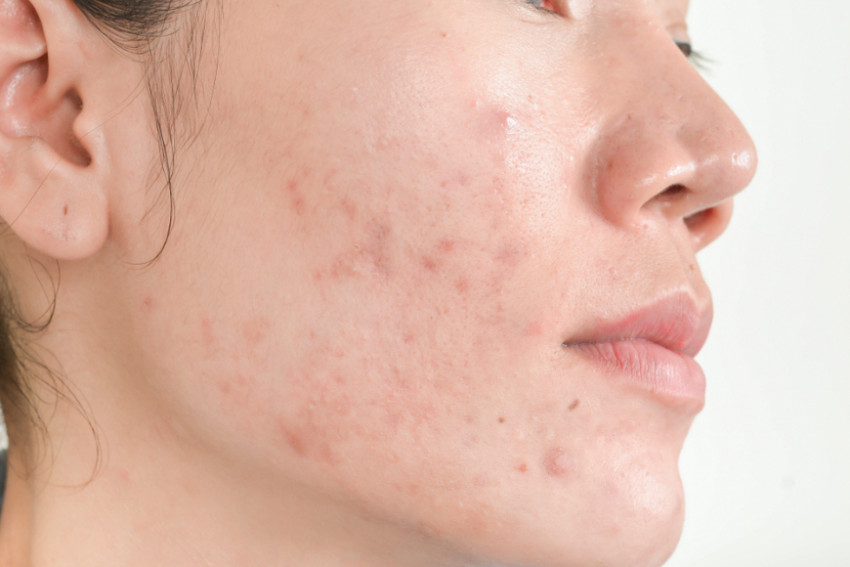
Dubai is renowned for its advanced healthcare facilities and cutting-edge dermatological treatments. When it comes to Acne Scars Treatment in Dubai, the city offers a range of sophisticated options that leverage the latest scientific advancements. This article delves into the science behind these treatments, explaining how they work to reduce and eliminate acne scars.
Understanding Acne Scars
Acne scars are the result of inflammation within the dermis brought about by acne. When the skin tries to repair these lesions, the new collagen fibers produced may not align with the surrounding skin, leading to scar formation. There are several types of acne scars, including atrophic (depressed) scars like ice pick, boxcar, and rolling scars, as well as hypertrophic (raised) scars.
Laser Treatments
Laser treatments are among the most popular and effective methods for treating acne scars in Dubai.
1. Fractional CO2 Laser:
- Science: Fractional CO2 lasers work by delivering a series of tiny, high-energy laser beams to the skin. These beams create micro-injuries in the skin, stimulating the body's natural healing process and promoting collagen production.
- Effectiveness: This treatment is particularly effective for deep scars and significant textural improvements, offering noticeable results after a few sessions.
2. Non-Ablative Lasers:
- Science: Non-ablative lasers, such as Nd:YAG lasers, target the deeper layers of the skin without damaging the surface. They stimulate collagen production and skin tightening.
- Effectiveness: Suitable for mild to moderate scars, non-ablative lasers require minimal downtime and are effective over multiple sessions.
Microneedling
Microneedling is another scientifically-backed treatment available in Dubai for acne scars.
- Science: This procedure uses fine needles to create micro-punctures in the skin. These controlled injuries trigger the body's wound healing processes, resulting in increased collagen and elastin production.
- Effectiveness: Microneedling is effective for atrophic scars, particularly rolling scars, and can be combined with platelet-rich plasma (PRP) therapy for enhanced results.
Chemical Peels
Chemical peels are a staple in dermatology for treating various skin imperfections, including acne scars.
- Science: Chemical peels involve the application of a chemical solution to the skin, causing the outer layer to exfoliate and peel off. This process reveals a new, smoother layer of skin and stimulates collagen production.
- Effectiveness: The depth and strength of the peel are tailored to the severity of the scars. Glycolic acid, TCA (trichloroacetic acid), and phenol peels are commonly used, each offering different levels of skin penetration and results.
Radiofrequency (RF) Therapy
Radiofrequency therapy is a non-invasive treatment that has gained popularity for its effectiveness in treating acne scars.
- Science: RF therapy uses radiofrequency energy to heat the deeper layers of the skin. This heat stimulates collagen production and remodeling without damaging the surface.
- Effectiveness: Effective for mild to moderate scars, RF therapy can improve skin texture and firmness with minimal downtime.
Platelet-Rich Plasma (PRP) Therapy
PRP therapy utilizes the body's own healing mechanisms to improve skin health and appearance.
- Science: PRP involves drawing a small amount of the patient's blood, processing it to concentrate the platelets, and then injecting this platelet-rich plasma into the scarred areas. Platelets release growth factors that promote healing and collagen production.
- Effectiveness: Often used in conjunction with microneedling, PRP enhances the skin's healing response and accelerates the reduction of scars.
Dermal Fillers
For immediate improvement of depressed acne scars, dermal fillers are a viable option.
- Science: Dermal fillers contain substances like hyaluronic acid, which is naturally found in the skin. When injected into the scarred area, they fill and lift the depressed scars to the level of the surrounding skin.
- Effectiveness: While results are immediate, they are temporary, typically lasting several months before re-treatment is needed.
Conclusion
Dubai offers a plethora of scientifically advanced treatments for acne scars, each targeting different aspects of scar formation and skin healing. The choice of treatment depends on the type and severity of scars, skin type, and individual preferences. By leveraging these cutting-edge techniques, patients in Dubai can achieve significant improvements in skin texture and appearance, ultimately boosting their confidence and quality of life. Consulting with a qualified dermatologist is crucial to developing a personalized treatment plan that yields the best results.




